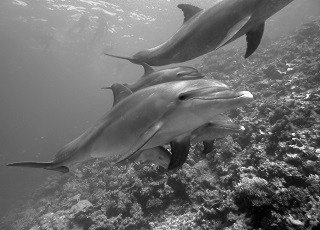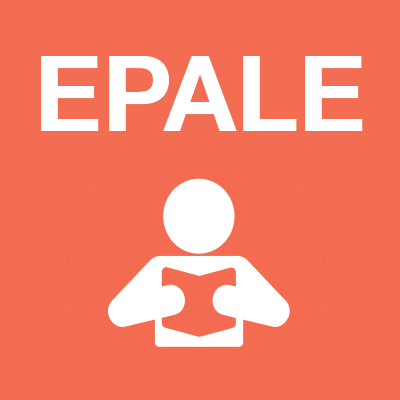Inclusive Education: Fighting School Segregation

Description: School segregation is still an unfortunate reality in Europe today. Its negative consequences affect in particular Roma children, children with disabilities, children with a migrant background and other children due to their social or personal circumstances. Many European member states have adopted important measures to build more inclusive education systems and to guarantee the right of all children to education without discrimination. In practice, however, authorities at the national and local level do not always abide by their obligations and often yield to pressure from different sources, including from school administrations, teachers and other professionals and from families. This course aims at raising awareness of inclusive education both at the administrative level (School principals, headteachers, etc.) as well as promoting parental participation in the school.
FIND US ON
Dates and Locations
- 12.–16.10.2026
- 27.04.–01.05.2026
- 19.–23.04.2027
- 13.–17.09.2027
Don’t see the dates that suit your group? Send us an e-mail with the proposed dates and location and we will get back to you.*
* - Only in case you are 7 or more persons from the same organisation.
Daily Programme
Monday
- Introduction to the course
- Getting to know each other
- Expectations and personal goals
- Education as a Human Right (quiz game and discussion)
- “Show me your students and I will tell you who you are” (role play)
- Assessing student from vulnerable groups needs
- Education For All. A global commitment. (interactive presentation)
- Continuous Group work: Classroom Desegregation Strategies - Setting clear targets and sufficient resources to implement them within a clear and an ambitious timetable
- Homework – “Inclusive education in my country: legislation and practice”
- Reflection
Tuesday
- Legal frameworks for inclusive education (presentations by the participants on the implementation of inclusive education policy on a national level)
- Roleplay: Balancing the distribution of students from vulnerable groups
- Group work: closing the gap between schools and families - Promoting parental participation in the school
- Continuous Group work: Classroom Desegregation Strategies - Setting clear targets and sufficient resources to implement them within a clear and an ambitious timetable
- Homework - “Learning vs teaching difficulties” (scenario for short drama)
- Reflection
Wednesday
- Presentation of our scenarios with the subject “Learning Vs Teaching difficulties”
- Group discussion: Regulating and monitoring school admissions
- The architecture of the inclusive educational centre (exercise)
- McDermott and Varenne’s “Culture as Disability”. Intercultural communication session.
- Continuous Group work: Classroom Desegregation Strategies - Setting clear targets and sufficient resources to implement them within a clear and an ambitious timetable
- Homework: “A one-day educational excursion schedule, including learners from vulnerable groups”
- Reflection
Thursday
- Fair of “Inclusive one-day educational excursions”
- From “I want” to “I can” (debate)
- Group presentations: Classroom Desegregation Strategies
- Reflection
Friday
- Summary and course evaluation
- Feedback & certificates
- Cultural excursion in the local area
Competences Acquired by Participants
Specific objectives of the seminar are:
- Enhance understanding of the importance of inclusive education and equal rights
- Enhance ability to identify legal frameworks supporting inclusive education
- Enhance the ability to recognize challenges faced by vulnerable groups in education
- Enhanced ability to assess the specific needs of students from diverse backgrounds
- Develop strategies to desegregate classrooms
- Set clear goals and allocate resources for inclusive education plans
- Develop strategies to promote parental involvement in schools
- Enhance intercultural communication skills for a more inclusive environment
- Advocate for inclusive education practices within their school communities
- Develop collaborative approaches to address challenges in inclusion
- Improved English language skills
Type of Certification of Attendance Awarded
- Certificate of attendance including description of training content and time input
- Europass mobility certificates – to be issued by the applicant’s NA
Course Packages
Please note that ‘All in one – single room’ and ‘All in one – double room’ packages are being offered only in Limassol, Cyprus
1. ‘ALL IN ONE – Single room’ PACKAGE - 1240€
- Tuition fee and training material
- Certificate of Competence
- Welcome dinner
- Accommodation in a Single room in a 3 or 4-star hotel (6 nights)
- Full Board (5 days)
- Administration costs
- Coffee Breaks
- Cultural visit
2. ‘ALL IN ONE – Double Room Sharing’ PACKAGE- 1040€
- Tuition fee and training material
- Certificate of Competence
- Welcome dinner
- Accommodation - double room sharing in a 3 or 4-star hotel (6 nights)
- Full Board (5 days)
- Administration costs
- Coffee Breaks
- Cultural visit
*Choose double room sharing if you are 2 colleagues from the same organisation willing to share a double room/ or if you have any accompanying person travelling to the venue of the course together with you (we can arrange the accommodation for accompanying persons as well).
3. ‘BASIC’ course PACKAGE - 450€
- Tuition fee and training material
- Certificate of Competence
- Welcome dinner
- Administration costs
- Coffee Breaks
- Cultural visit
Note: separate invoices for the training fee only (400 EUR) can be issued upon request from the organisation.
DOREA as well offers group discounts in the case of 7 or more persons from the same organisation.



